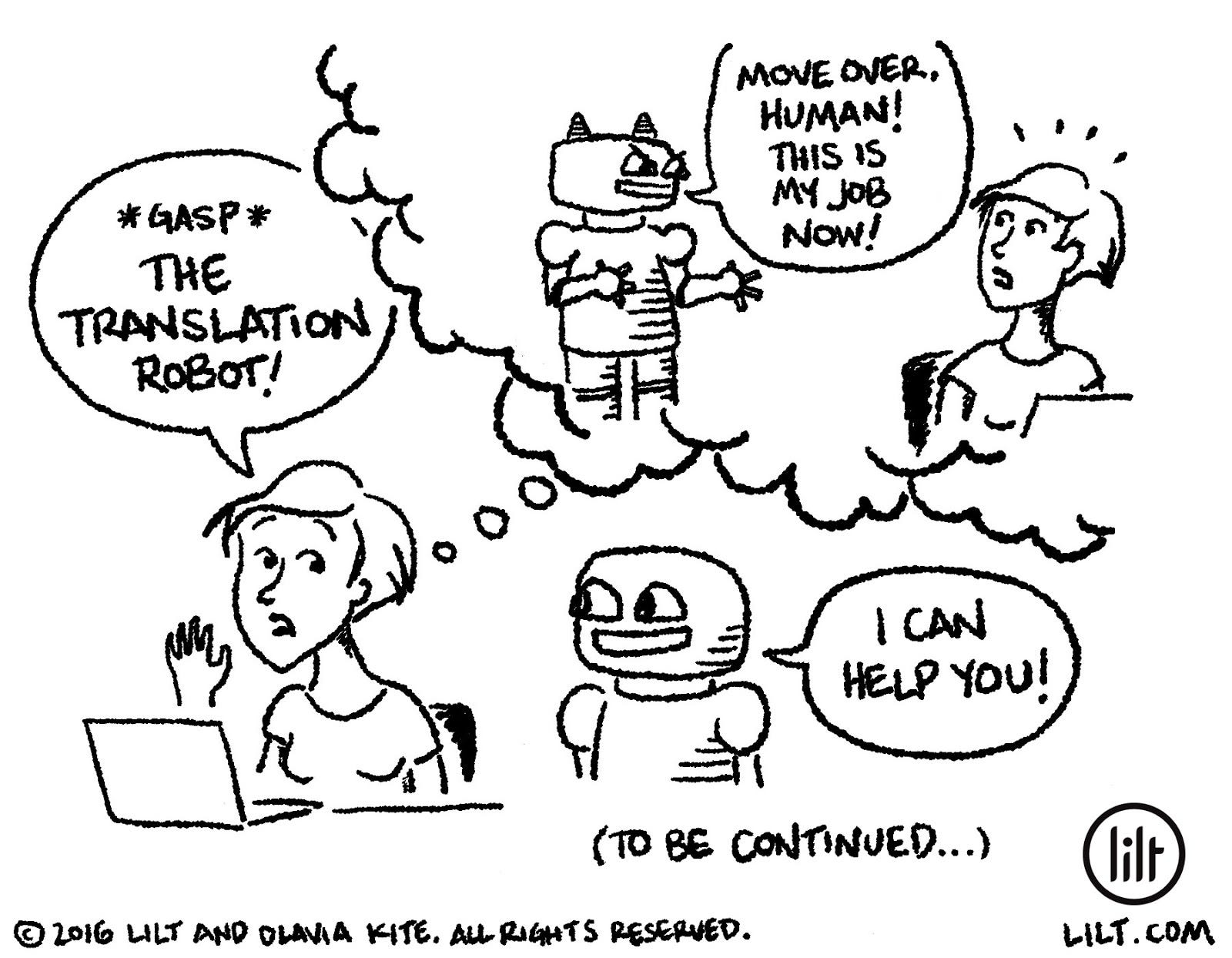The Augmented Translator: How Their Jobs are Changing and What They Think About It

Written by Kelly Messori
The idea that robots are taking over human jobs is by no means a new one. Over the last century, the automation of tasks has done everything from making a farmer’s job easier with tractors to replacing the need for cashiers with self-serve kiosks. More recently, as machines are getting smarter, discussion has shifted to the topic of robots taking over more skilled positions, namely that of a translator.
A simple search on the question-and-answer site Quora reveals dozens of inquiries on this very issue. While a recent survey shows that AI experts predict that robots will take over the task of translating languages by 2024. Everyone wants to know if they’ll be replaced by a machine and more importantly, when will that happen?
“I’m not worried about it happening in my lifetime” translator, Lizajoy Morales, told me when I asked if she was afraid of losing her job to a machine. This same sentiment echoes with most of Lilt’s users. Of course, this demographic is already using artificial intelligence to their advantage and tend to see the benefits over than the drawbacks.

Many translators, however, are quick to argue that certain types of content are impossible to be translated accurately by a machine, such as literature, which relies on a human’s understanding of nuance to capture the author’s intention. Or in fields like legal or medicine, that rely on the accuracy of a human translator.
But even in these highly-specialized fields, machines can find their place in the translation workflow. Not as a replacement, but rather as an assistant. As translators, we can use machines to our advantage, to work better and faster.
But I’m not talking about post-editing of machine translation. In a recent article from a colleague, Greg Rosner talks of the comparison of post-editing to the job of a janitor — just cleaning up a mess. True machine assistance augments the translator’s existing abilities and knowledge, letting them have the freedom to do what they do best — translate — and keeping interference to a minimum.
So how do machines help translators exactly? With an interactive, adaptive machine translation, such as that found in Lilt, the system learns in real-time from human feedback and/or existing translation memory data. This means that as a translator is working, the machine is getting to know their content, style and preferences and thus adapting to this unique translator/content combination. This adaptation allows the system to progressively provide better suggestions to human translators, and higher quality for fully automatic translation. In basic terms, it’s making translators faster and better.
Morales also pointed out another little-known benefit from machine translation suggestions: an increase in creativity. “This is an unexpected and much-appreciated benefit. I do all kinds of translations, from tourism, wine, gastronomy, history, social sciences, financial, legal, technical, marketing, gray literature, even poetry on occasion. And Lilt gives me fantastic and creative suggestions. They don’t always work, of course, but every so often the suggestion is absolutely better than anything I could have come up with on my own without spending precious minutes searching through the thesaurus…once again, saving me time and effort.”
Many are also finding that with increased productivity, comes increased free time. Ever wish there were more hours in the day? If you’re a translator, machine assistance may be the solution.
David Creuze, a freelance translator, told us how he spends his extra time, “I have two young children, and to be able to compress my work time from 6 or 7 hours (a normal day before their birth) to 4 hours a day, without sacrificing quality, is awesome.”
With these types of benefits at our fingertips, we should stop worrying about machines taking the jobs of translators and focus on using the machine to our advantage, to work better and ultimately focus on what we do best: being human.
.jpeg)


